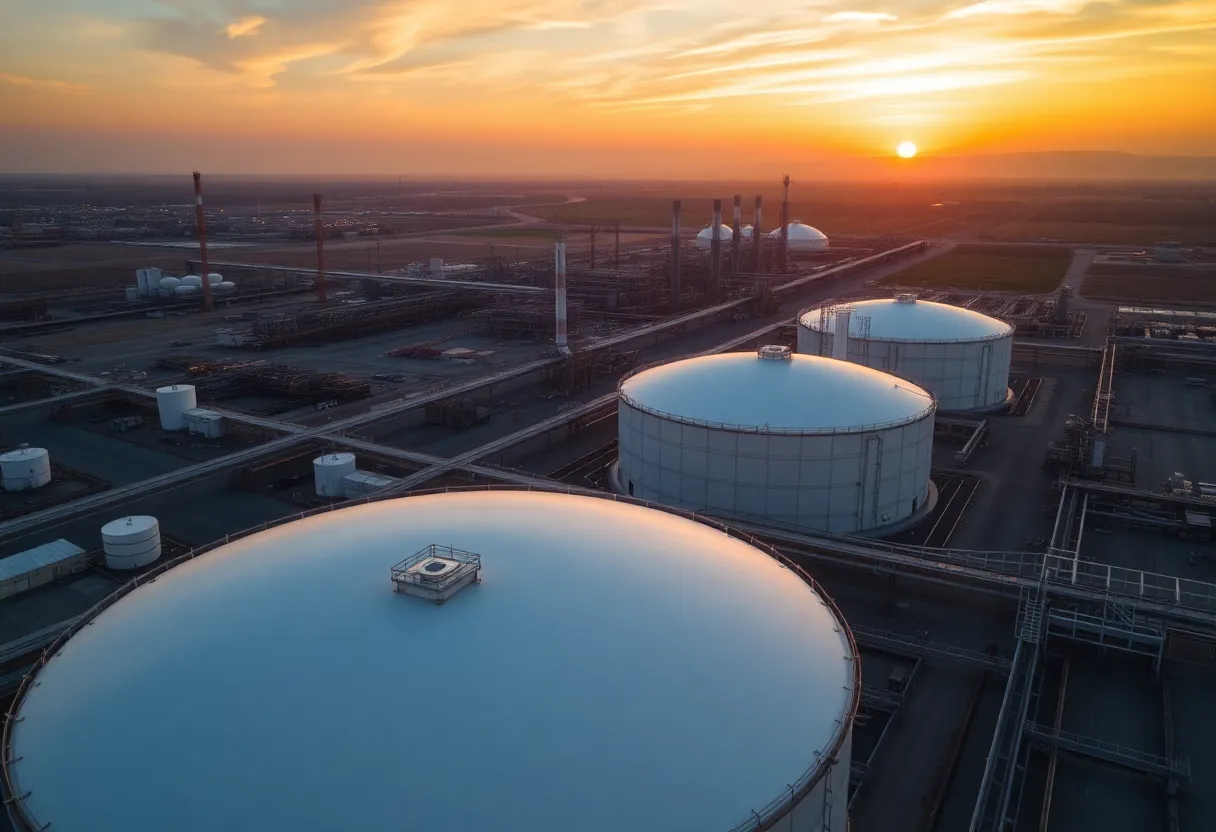California, August 30, 2025
News Summary
California’s Energy Commission has decided to postpone penalties for excessive refining profits for five years due to concerns over fuel supply and market stability. This decision comes after gasoline prices rose dramatically in 2022, urging the need for regulatory alignment as Phillips 66 prepares to close a major refinery. Governor Newsom’s reversal on these penalties aims to avoid potential price spikes and maintain affordability while the state pursues its ambitious climate goals, including an eventual ban on fossil-fuel-powered vehicles by 2035.
California’s Energy Commission has voted to delay penalties for excessive refining profits for a period of five years, responding to ongoing concerns regarding fuel supply and market stability. This decision follows the surge in gasoline prices that soared above $8 per gallon in 2022, leading to the introduction of these penalties in the first place.
The Commission’s choice to postpone implementing these penalties comes as Phillips 66 prepares to shut down its Los Angeles refinery ahead of its permanent closure. The staff at the Commission has indicated that the current supply of gasoline is declining at a rate faster than demand, prompting the need to align these two factors to ensure market stability.
California’s Governor Gavin Newsom, who initially proposed the penalties aimed at regulating excessive refining profits, reversed course due to fears that enforcing these penalties could lead to price spikes in 2026, especially in light of the anticipated refinery closures. Both Phillips 66 and Valero Energy Corp have attributed the falling demand for gasoline to California’s progressive policies favoring non-fossil-fuel vehicles. The state aims to ban the sale of fossil-fuel-powered vehicles by 2035 as part of its broader environmental goals.
The Western States Petroleum Association (WSPA) has expressed support for the Commission’s decision to delay the penalties, stressing that fuel prices are primarily influenced by global oil markets rather than state policies. In contrast, Consumer Watchdog has voiced concerns that this delay might incite future price spikes similar to those witnessed last year when gasoline reached unprecedented highs.
Alongside the decision on penalties, the Commission has adopted new policies intended to stabilize refinery capacity, increase imports of motor fuel, and develop the state’s oil reserves more effectively. California’s geographic isolation from key refining centers presents significant challenges—relying on a limited number of in-state refineries and imports from Washington and Asia, which underscores the importance of these new policies.
A refiner margin cap was instituted as part of a law signed in March 2023, giving the Commission the authority to determine profit margins and enforce penalties for excessive profits. However, despite this regulatory framework, no penalties have yet been imposed, and the Commission has not defined what it considers excessive profits.
As it stands, the average price for regular unleaded gasoline in California is $4.59 per gallon, a stark contrast to the national average of $3.20 per gallon, indicating the ongoing challenges of fuel affordability in the state. Experts caution that imposing penalties might discourage production and inadvertently lead to higher prices for consumers.
The shift in focus among California officials highlights a growing prioritization of fuel affordability, even as the state continues to push for climate action and a transition to more sustainable energy sources.
Frequently Asked Questions
Why did California decide to delay penalties for excessive refining profits?
The California Energy Commission delayed these penalties for five years due to concerns about potential price spikes and the declining supply of fuel relative to demand.
What are the implications of this decision on gasoline prices?
The delay may result in fewer regulatory constraints on refineries, but there are fears that it might lead to higher gasoline prices in the future, similar to the spikes seen in 2022.
What is California’s goal regarding fossil-fuel-powered vehicles?
California aims to ban the sale of fossil-fuel-powered vehicles by 2035 as part of its climate policy initiatives.
What has been the average gasoline price in California recently?
As of now, the average price for regular unleaded gasoline in California is $4.59 per gallon, significantly higher than the national average of $3.20.
Chart: Key Features of California’s Fuel Policy Updates
| Feature | Details |
|---|---|
| Penalty Delay Duration | 5 years |
| Gasoline Price Surge | Over $8 per gallon in 2022 |
| Average Gas Price (California) | $4.59 per gallon |
| Average Gas Price (National) | $3.20 per gallon |
| Vehicle Policy Goal | Ban fossil-fuel-powered vehicles by 2035 |
| Regulatory Framework | Refiner margin cap granted in March 2023 |
Deeper Dive: News & Info About This Topic
- Reuters: California Sets Aside Penalties for High Refinery Profits
- Investing.com: California Sets Aside Penalties for High Refinery Profits
- Politico: California Energy Commission Delays Refinery Profit Cap
- Bloomberg: Newsom’s Plan to Prevent Price Spikes Delayed
- Wikipedia: Gasoline

Author: STAFF HERE SAN DIEGO WRITER
The SAN DIEGO STAFF WRITER represents the experienced team at HERESanDiego.com, your go-to source for actionable local news and information in San Diego, San Diego County, and beyond. Specializing in "news you can use," we cover essential topics like product reviews for personal and business needs, local business directories, politics, real estate trends, neighborhood insights, and state news affecting the area—with deep expertise drawn from years of dedicated reporting and strong community input, including local press releases and business updates. We deliver top reporting on high-value events such as Comic-Con International, San Diego County Fair, and San Diego Pride Festival. Our coverage extends to key organizations like the San Diego Regional Chamber of Commerce and United Way of San Diego County, plus leading businesses in biotechnology, healthcare, and technology that power the local economy such as Qualcomm, Illumina, and Scripps Health. As part of the broader HERE network, including HEREAnaheim.com, HEREBeverlyHills.com, HERECostaMesa.com, HERECoronado.com, HEREHollywood.com, HEREHuntingtonBeach.com, HERELongBeach.com, HERELosAngeles.com, HEREMissionViejo.com, and HERESantaAna.com, we provide comprehensive, credible insights into California's dynamic landscape.





